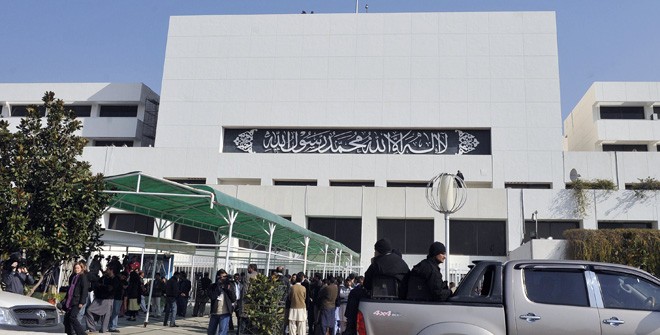

A nascent democracy of Pakistan is not just vulnerable to external shocks but is also being gnawed at by its own guardians. Democracy can only be shielded by masses if it delivers to them or at least demonstrates a commitment to that effect.
For the common people, democracy manifests in very basic returns like security of life and property, justice and basic social services. Needless to mention, citizens’ participation in political process is also an important pillar of democracy, which is not restricted to casting a vote after five years, if allowed at all. Other meaningful forms of citizens’ participation are achieved through a vibrant and dynamic civil society.
In evolved societies, civil society becomes a metonymy to democracy. In fact both are inextricably intertwined and complement each other for mutual survival and fortification. If any democratic dispensation clips the wings of civil society, it is tantamount to cutting of its own nesting branch.
Civil society in Pakistan is in its formative phase. Frequently interrupted democratic eras with more conspicuous and protracted dictatorial regimes have stunted the growth of civil society institutions in Pakistan. Trade unions, student unions, writers and intellectuals forums, media, academia and professionals’ association (e.g. teachers, doctors, lawyers, journalists) could not thrive in Pakistan even after the passage of nearly seven decades. Dictators always demonised them as a bunch of quislings and elected rulers strangulated them for criticising and questioning the quality of their governance.
Whereas individuals and institutions of civil society were not immune from ills that have afflicted the society at large, their very existence and functioning is of paramount importance for democracy. Qualms and skepticism on both sides would jeopardise their shared interests and enervate democracy.
The PML-N has an innate proclivity to curtail the space of civil society. It tends to be inward looking thus precluding a greater participation of civil society in politics. It is a paradox that a regime which is genetically capitalist, stymies the civil society. Proscribed outfits operate with complete impunity but non-governmental organisations need no-objection certificates to carry out humanitarian and development activities.
Unauthorised offices and dubious activity-centres of such groups function unhindered but civil society offices are frequently searched and put under surveillance. Their staff is interrogated and grilled by law enforcement apparatus.
The imperatives of transparency and accountability are fully recognised but their selective and arbitrary use only against civil society institutions is an anathema to democratic norms.
Rights-based groups are particularly scorned because they mobilise society to hold state institutions accountable and responsible to citizenry. Such groups are particularly detested because they create demand for social and judicial justice, constitutionally promised rights and services, participation in decision-making, respect for human rights and compliance to international commitments. It hurts one more when such attitude is practices by any elected regime.
A reasonable array of laws and rules for regulation is already in place. In case of any lacunas and shortcomings, the existing regulatory mechanism can be improvised to cater to new realities.
Pakistan already has a faltering reputation on human rights and freedoms enshrined in its constitution. New strictures on civil society will only tarnish its image in the international community, where freedom of civil society is considered non-negotiable.
Considering the alarming deficit of human development and a tainted image of the country in the international community, it would be wiser to constructively engage and empower civil society on a shared national agenda for coming decades.
Democracy, good governance, peace, economic growth, technological innovations, human rights and human development are vital areas where government can forge meaningful partnerships with civil society. Such formidable challenges cannot be managed in isolation by government or civil society.
The challenge is snowballing against the backdrop of political changes in the region, mounting impatience of international community and sprawling militancy and extremism in different regions. Pakistan is being considered as an epicentre of militancy and a factory of extremist elements. Misdirected foreign policy and misplaced internal priorities need serious and urgent debate.
A fragile democratic dispensation can ill-afford confrontation with civil society which has a potential to support democracy at challenging moments.